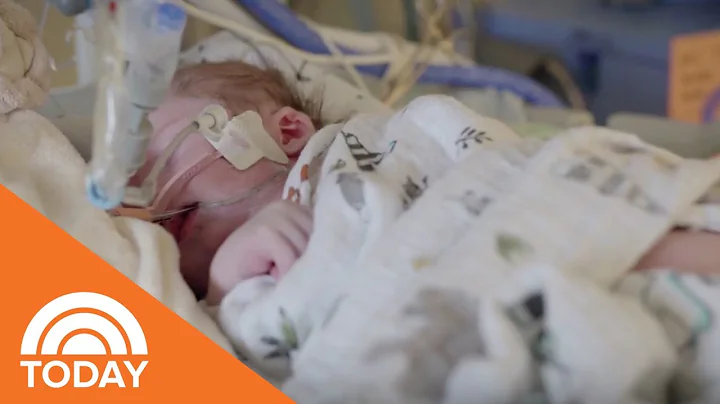If your child develops nausea, vomiting, chest pain, shortness of breath, drowsiness and other symptoms during illness or within two weeks after recovery, then it is necessary to check whether there is the possibility of myocarditis .
Myocarditis in children is known as the "hidden killer" that endangers children's lives, mainly because its early clinical characteristics lack specificity and are similar to many common acute upper respiratory tract infections symptoms. It can easily be misdiagnosed, resulting in a particularly high risk.

Its incidence varies in severity. Some patients have mild symptoms and can recover on their own within a few weeks, while others have severe symptoms and a relatively high mortality rate (the fatality rate of fulminant myocarditis is about 80%).
- What is myocarditis in children?
Myocarditis refers to a disease in which cardiac function disorders occur due to inflammation and necrosis of cardiomyocytes or interstitial cells between cardiomyocytes.
If the heart is regarded as a house, the myocardial cells are like the surrounding walls, and the interstitial cells between them are like cement. If they are damaged, the house will be shaky or even damaged and collapsed.
Among them, the most common cause is viral infection, also known as viral myocarditis .
It mostly occurs in infants and adolescents. Although the incidence rate is not high, serious consequences or even death may still occur, and parents need to be vigilant.

However, not all myocarditis will have symptoms. Our myocardium is capable of repairing and compensating on its own after being damaged.
Even some cases of myocarditis have no symptoms. They come on and get better quietly, and the patient is completely unconscious.
However, if the myocardial damage is obvious and the function is incomplete, then the following obvious symptoms will appear:
① Other system compensation problems: dyspnea, shortness of breath, etc.;
② Myocardial damage , problems caused by ischemia: chest pain , palpitations (the heart beats uncomfortably or feels panicked), arrhythmia (abnormal heart beating frequency and rhythm, such as irregular heartbeat , too fast heartbeat), etc.;
③ Symptoms of cardiac insufficiency: because The heart cannot provide enough blood to the whole body, resulting in weakened pulse, low blood pressure , cold hands and feet, edema (generally occurring in the lower limbs of the body, such as feet and legs), oliguria, etc.;
④ 1 to 3 weeks before the onset of illness Symptoms of viral infection will appear: such as fever, drowsiness, fatigue, muscle aches, irritability, vomiting, abdominal pain and even coma;
In most cases, these symptoms will not appear all at once, but will slowly appear. Increase.
However, many babies cannot accurately tell where they feel uncomfortable. Usually by the time parents find out, the condition is already very serious and it is difficult to get accurate treatment at the first time. How to effectively prevent
- ?
As we said before, in general, myocarditis in babies is caused by viral infections, such as enterovirus (Coxsackie virus can easily cause herpetic angina and hand, foot and mouth disease), adenovirus (causing pharyngeal conjunctival fever and pneumonia), cytomegalovirus , parvovirus B19, Epstein-Barr virus, and human herpes virus.
After these viruses infect the body, they will directly attack myocardial cells, causing direct damage. They will also cause the body's immune response to act on the cells of the heart, further damaging the heart.

According to research data, children with myocarditis usually have a history of respiratory diseases within 2 weeks, and a few children also have a history of digestive tract diseases.
Therefore, if a child suffers from respiratory disease or intestinal disease caused by viral infection, parents should pay attention to it and do not think that it will be fine after the disease is cured.
Especially when children are accompanied by symptoms such as vomiting, shortness of breath, loss of appetite, fever, and lethargy, they should go to the hospital in time.
Of course, some parents may be worried that when their children have intestinal diseases, they will have vomiting and loss of appetite. Does this mean that they have myocarditis?
As mentioned before, the symptoms of myocarditis are not typical. There is no research that shows that a certain symptom means that the child has myocarditis. However, when parents find that their children have symptoms that should not be associated with the current disease, such as intestinal diseases, but shortness of breath, listlessness, etc., It is necessary to pay attention to the child's physical condition in time.
If the baby develops viral myocarditis, how should parents take daily care?
- How to do daily care
If the baby has viral myocarditis, parents should try to reduce the burden on the baby's heart and do the following:
① Let the child rest in bed and avoid strenuous exercise
Because myocarditis will damage the baby's heart Function is affected, so be sure to stay in bed and avoid strenuous activities to reduce the burden on the heart.
② Reduce liquid intake
After liquid is absorbed into the blood, it needs to be transported to the whole body through the beating of the heart, which will undoubtedly increase the burden on the heart, so pay attention to diet control, especially liquid intake.
Some parents feel that their babies lack nutrition when they are sick and should eat more supplements. However, they should pay attention to the specificity of the disease and avoid doing bad things with good intentions.





















